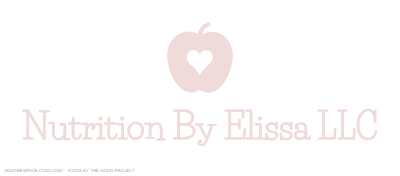In today’s fast-paced world, we are often told what, when, and how much to eat. There is an abundance of information on diets, health trends, and body ideals, which can sometimes disrupt our own body's natural signals of hunger and fullness. This is where intuitive eating comes in—an approach that encourages us to reconnect with the body's internal cues and trust ourselves to make nourishing food choices.
The Importance of Hunger and Fullness Cues
Hunger and fullness cues are the body’s natural signals that guide us on when start and stop eating. Many individuals with a history of dieting may become disconnected from these signals
Hunger Cues
Hunger is our body’s way of telling us that it needs to be nourished. Hunger can manifest in a variety of ways including irritability, low energy, difficulty concentrating, or even physical sensations like dizziness or weakness.
Those who eat intuitively learn to honor their hunger, eating when they’re hungry, regardless of the clock or external rules.
Fullness Cues
Fullness is our body’s way of signaling that we’ve eaten enough to appropriately nourish ourselves.
Many of us have become accustomed to eating until we are uncomfortably full, but intuitive eating encourages us to stop when we feel satisfied. By paying attention to fullness cues, we avoid eating to an uncomfortable point where we nourish our body and feel satisfied.
How Intuitive Eating Helps You Tune Into Hunger and Fullness
Trusting Your Body
By honoring hunger and fullness cues, we begin to trust our bodies to tell us what and when to eat. This shift from reliance on external rules to internal guidance can help break free from restrictive dieting habits and foster a more balanced approach to food.Eating Mindfully
By slowing down and focusing on the sensory experience of eating, we become more attuned to our body’s hunger and fullness signals. This practice helps prevent overeating, as we’re more likely to notice when we’ve had enough.
Practical Tips for Honoring Hunger and Fullness
Check in with your body: Before eating, take a moment to assess your hunger level. Are you lightly hungry or starving? This will help you decide how much food you need.
Eat mindfully: Slow down and pay attention to the tastes, textures, and smells of your food. Eating without distractions allows you to tune into your fullness cues more easily.
Stop when you’re satisfied: Rather than eating until you’re full, aim to stop when you feel satisfied. This is the sweet spot where your body has enough nourishment without overloading it.
Final Thoughts
Intuitive eating is a powerful tool for reconnecting with our bodies and reclaiming our natural relationship with food. By paying attention to hunger and fullness cues, we learn to trust our bodies, eat mindfully, and make choices that honor our needs.
